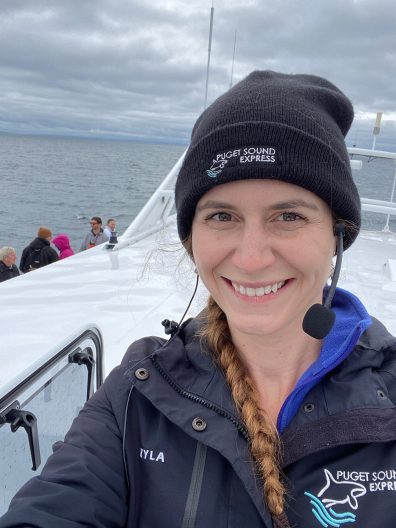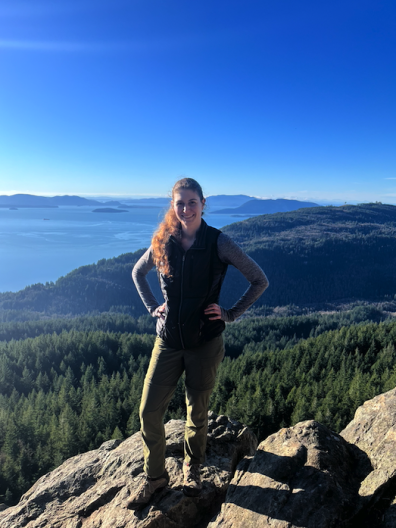Q&A with Kyla Bivens
How did you first hear about SMEA? What were your impressions of the program?

In the spring of 2016, nearly nine years ago, I first discovered the School of Marine and Environmental Affairs (SMEA). At the time, I had been accepted into the University of Washington as an undergraduate and was exploring various academic options to determine which program piqued my interest most. During an admitted student event hosted by the College of the Environment, I learned about the School of Aquatic and Fishery Sciences (SAFS), which ultimately became my major.
As I explored the College of the Environment website further, I stumbled upon SMEA class descriptions and was immediately captivated by its offerings. I was drawn to courses like Ocean Law, International Environmental Management, and Marine Policy—subjects that perfectly aligned with my interests. I realized that SMEA’s focus on the intersection between science and human dimensions was exactly the type of education and career path I envisioned. However, I was disappointed to learn that SMEA’s graduate-level programs were not available to undergraduate students. Undeterred, I made a mental note to pursue a Master’s degree at SMEA after completing my undergraduate studies.

Fast forward to 2021, after a few years in the workforce, I remembered that early aspiration and decided to apply for SMEA’s graduate program. My first application was not successful, but I was undeterred. The program’s uniqueness, its curriculum, and its location in the Puget Sound—offering unparalleled access to diverse ecosystems—made SMEA my top choice. So, I applied again, and this time, I was accepted. And the rest is history, this quarter I will be fulfilling that dream I had as an 18 year old and will be graduating with a Master’s in Marine Affairs from SMEA.
Tell us about your Capstone Project
My team and I reported the results of a survey we administered about the public perception of aquaculture in Oregon. Oregon has lagged behind neighboring states like Washington and California in aquaculture production, with one hypothesis being that negative public sentiment toward the industry has hindered growth and investment. However, our survey results challenge this assumption. We found that the general public represented by our respondents held a generally positive view of aquaculture. There were not many strong opinions and most respondents simply expressed having limited knowledge on the topic. This finding provides valuable information for our clients at NOAA and the Oregon Aquaculture Association, as they work to shape strategies for expanding aquaculture in the state and engaging the public in future efforts.
What has been your favorite class so far? Why?
Definitely U.S. Coastal and Ocean Law. I thought the information learned was extremely useful not only for understanding environmental policy but for understanding the court system and laws that are relevant to everyone. Additionally, Ryan Kelly is a fun and entertaining professor to learn from, I always looked forward to going to class.
What do you like most about SMEA?
I like all the SMEA events and community building efforts that are made for our short time in the program. I also love how small the program is so you get the chance to get to know most of the professors as well.
What’s it like living in Seattle? What do you do in your spare time? Any favorite local spots?
I have loved living in Seattle! The mild weather and access to everything from sunny days on the sound, rainy days in the woods, or snowy days in the mountains is amazing. I spend a lot of my spare time on active or outdoor activities with some favorites being soccer, climbing, hiking, or anything on the water.